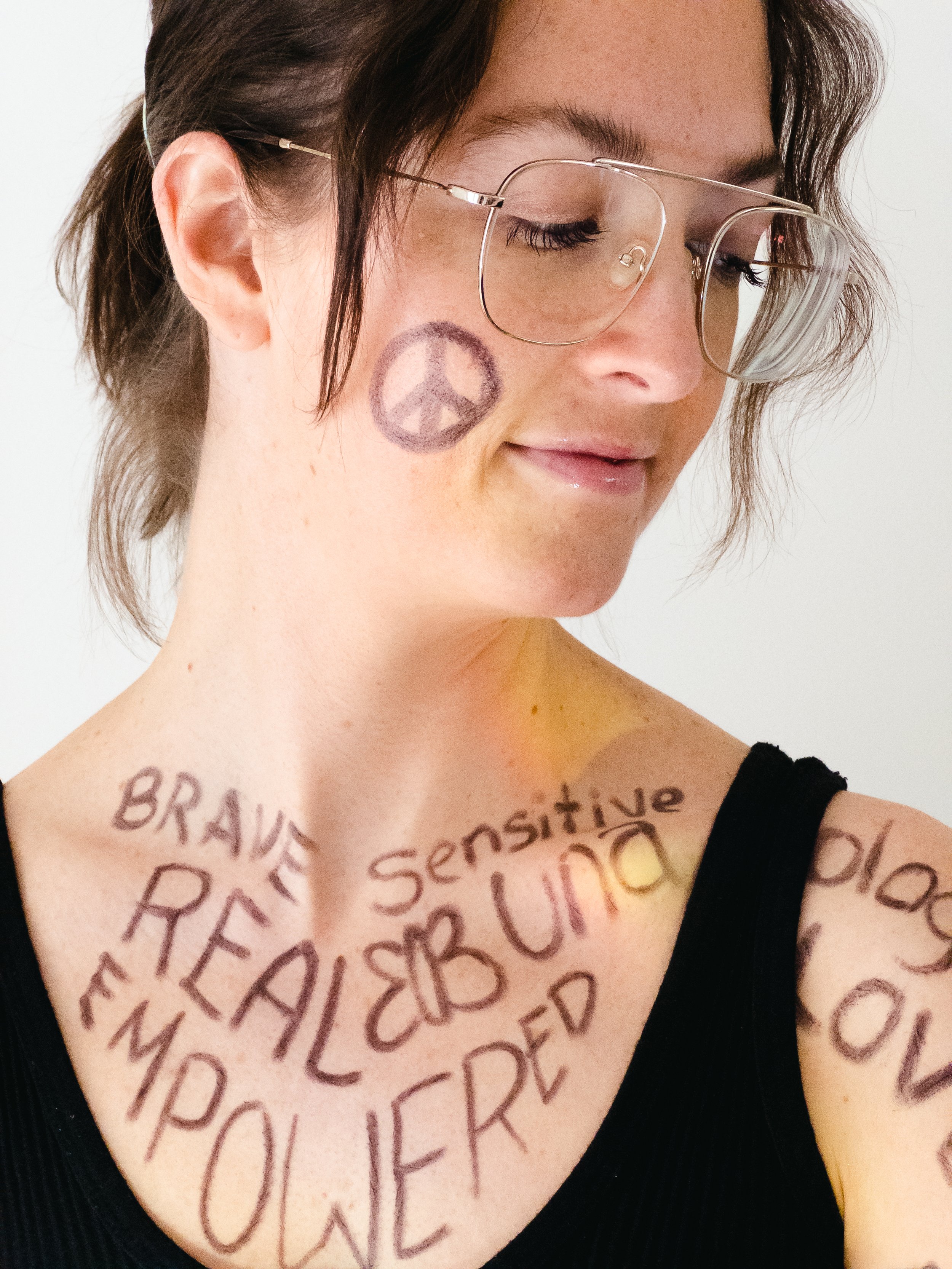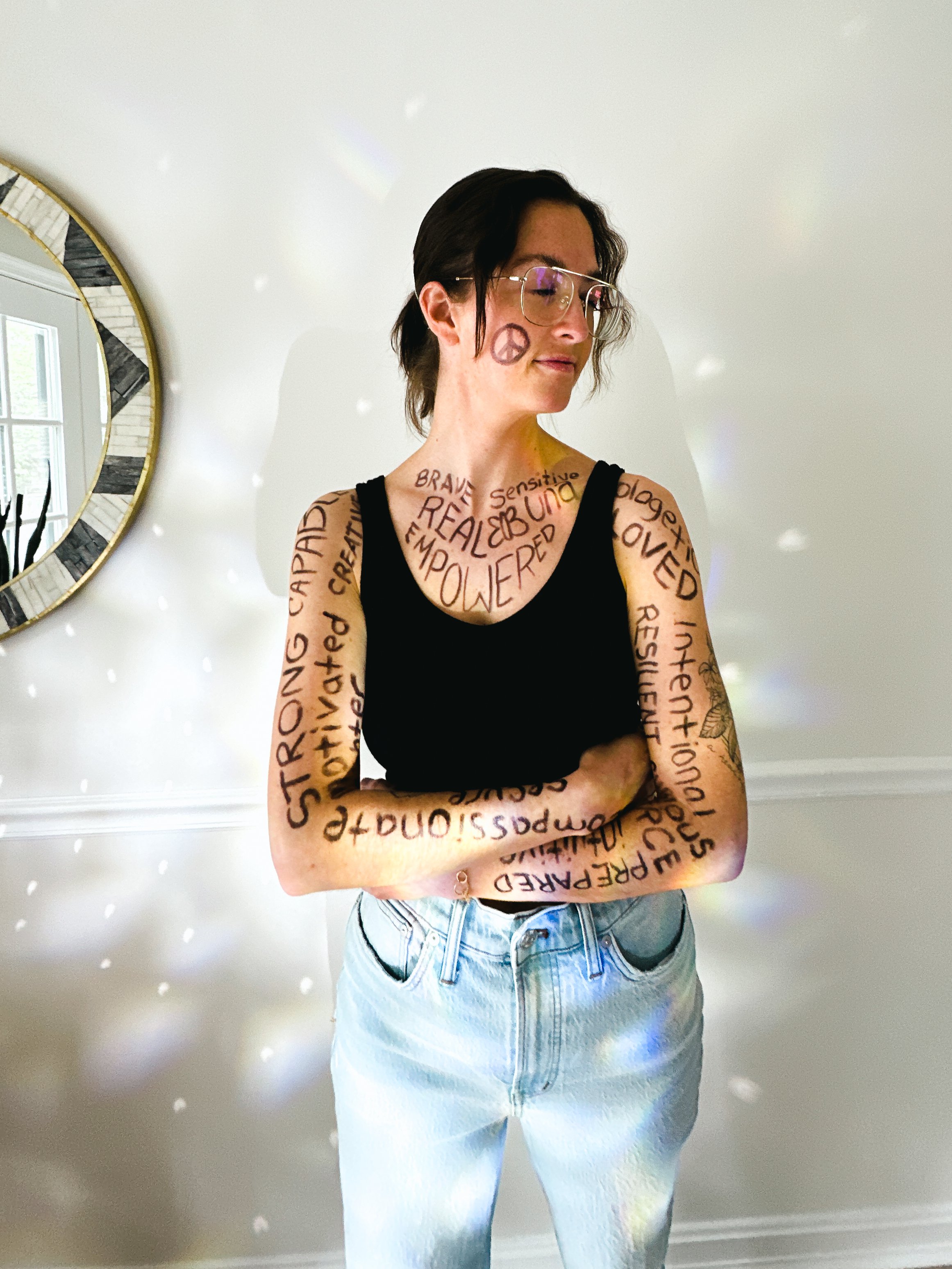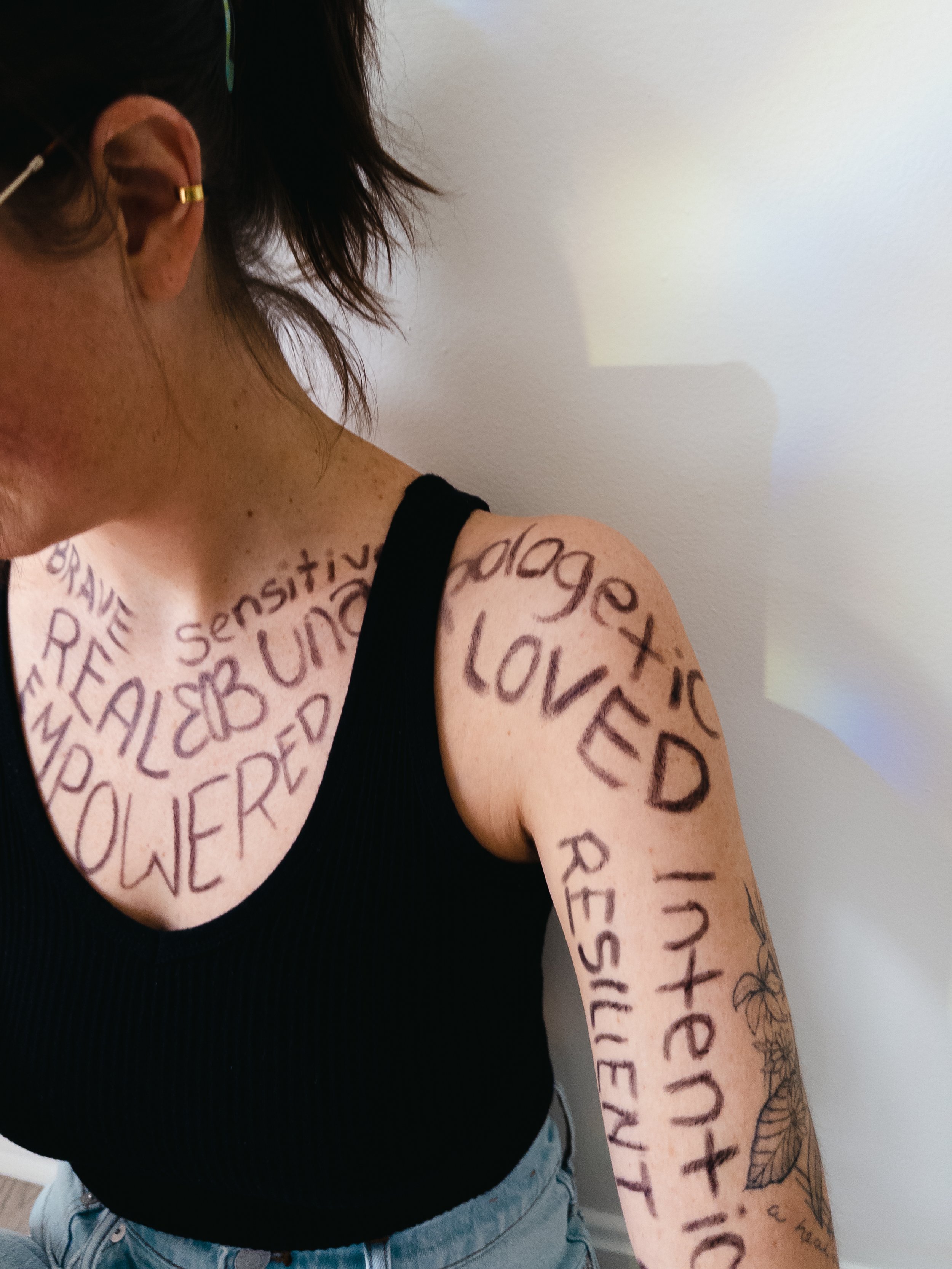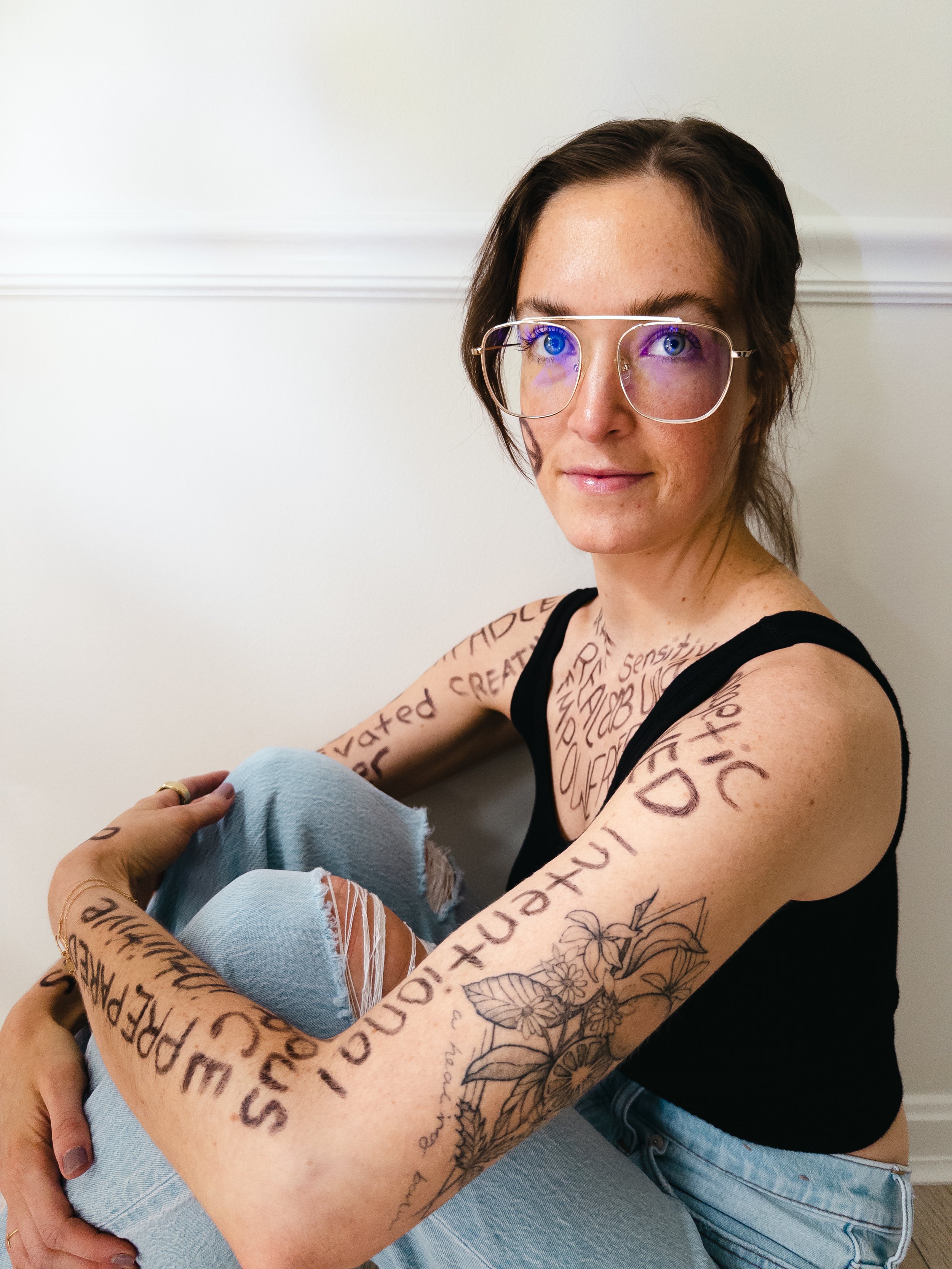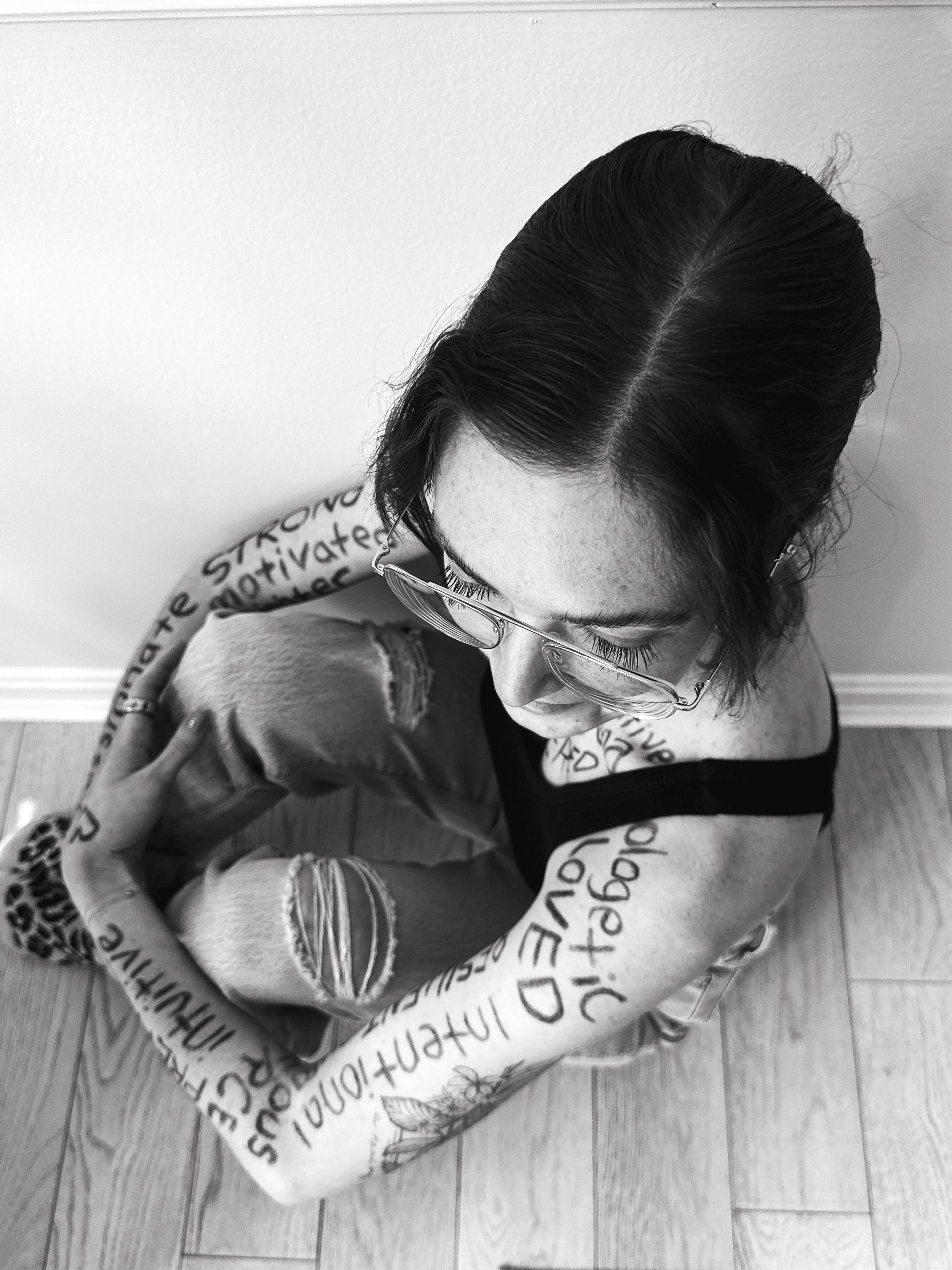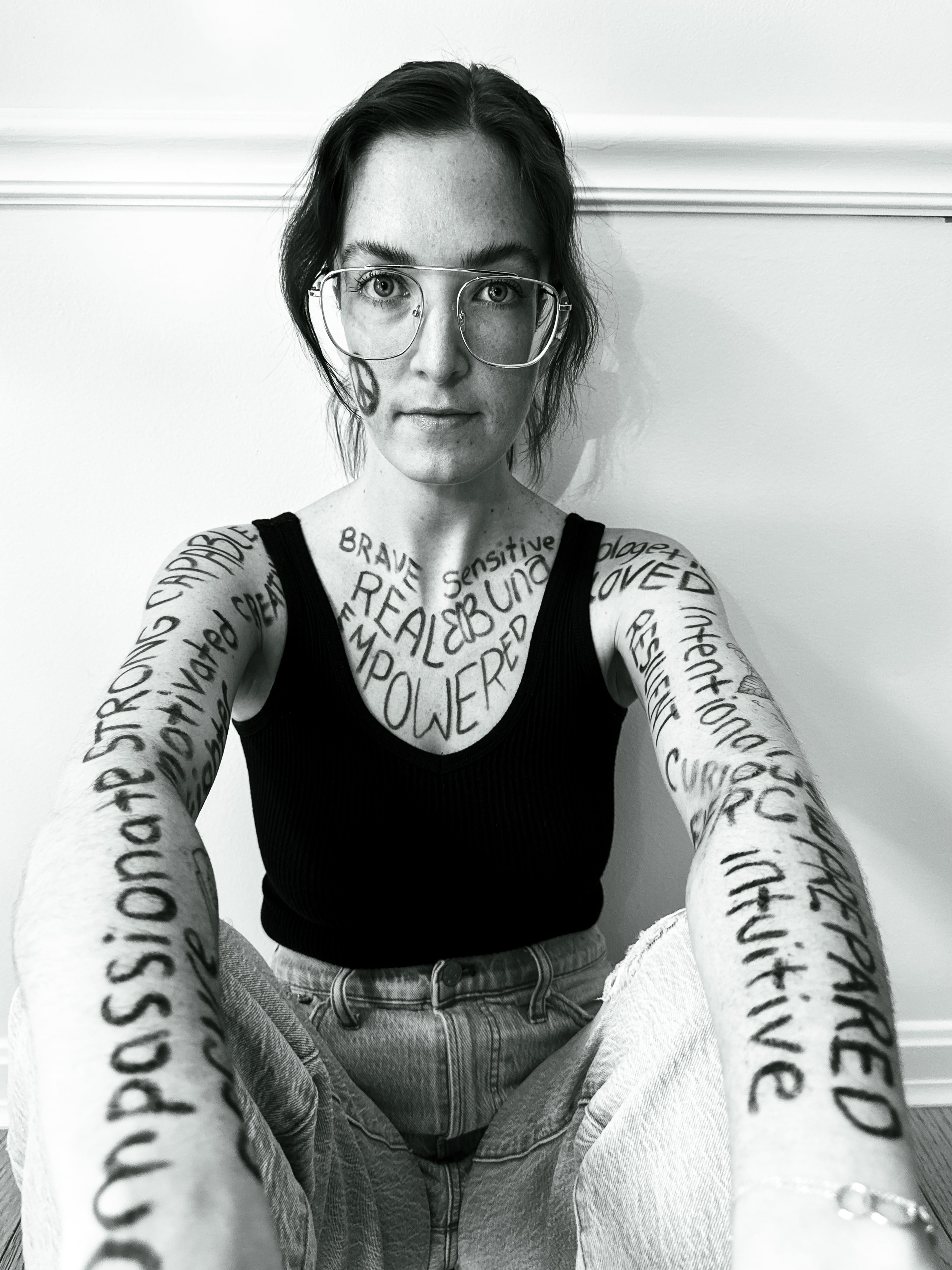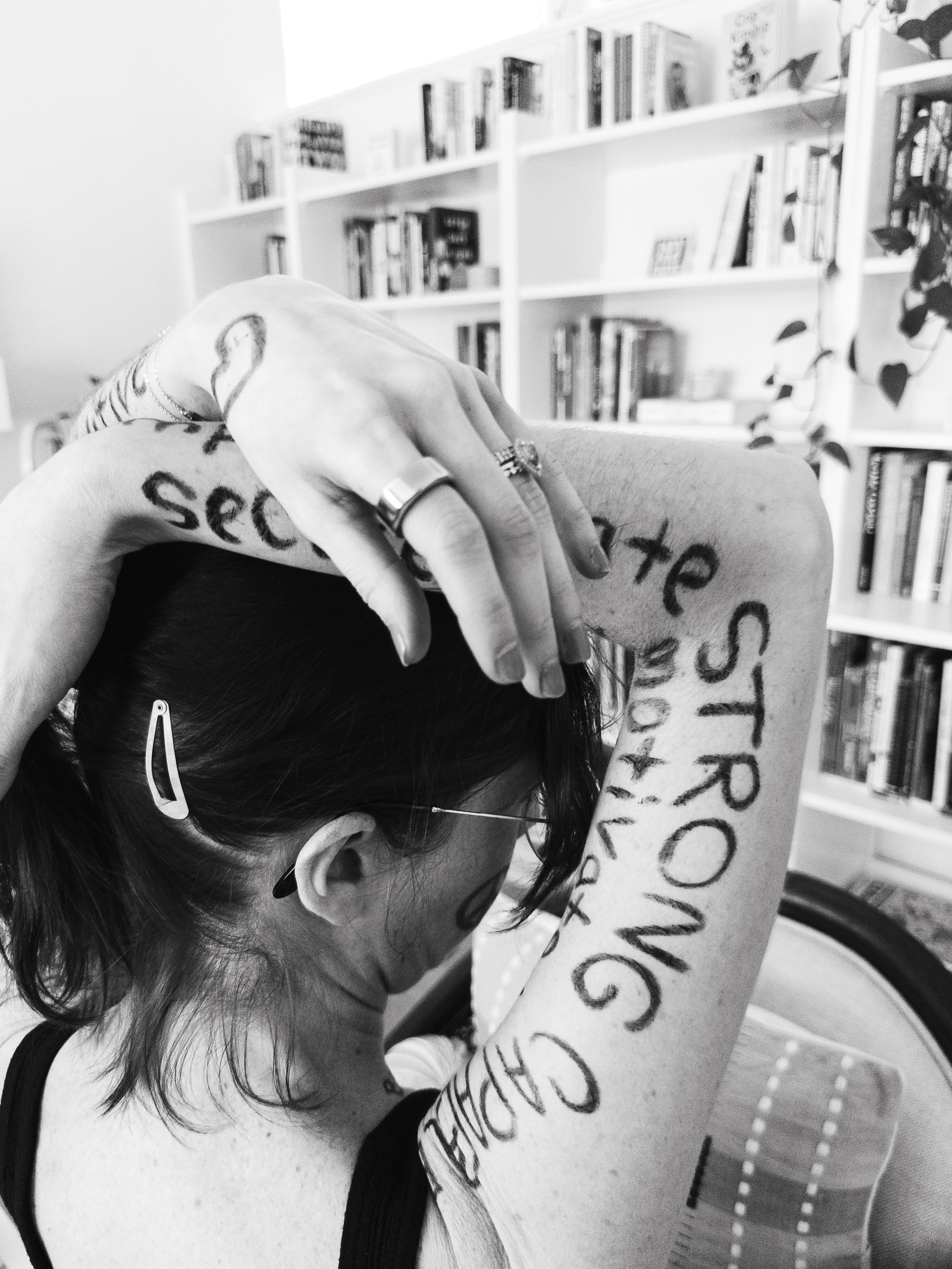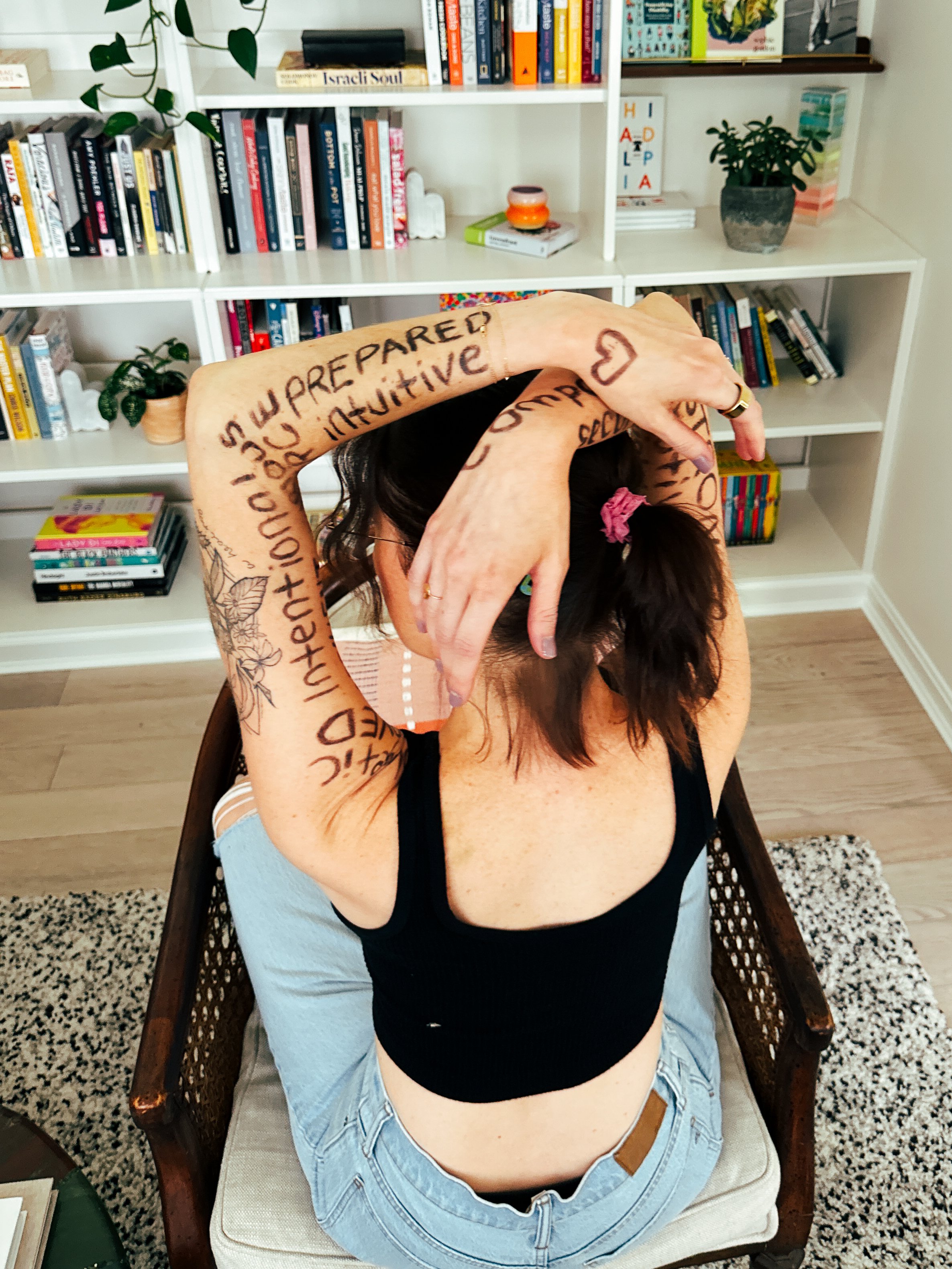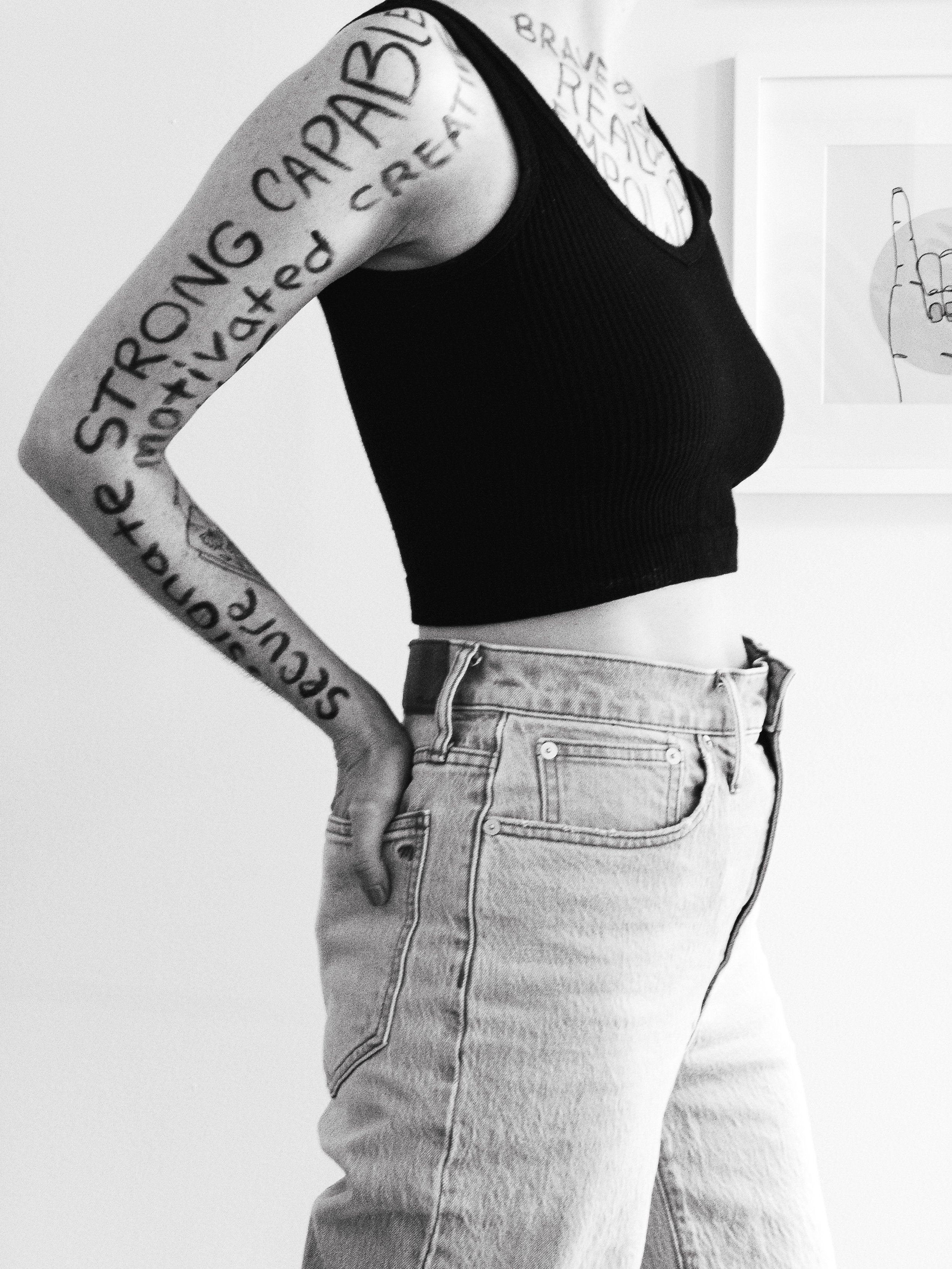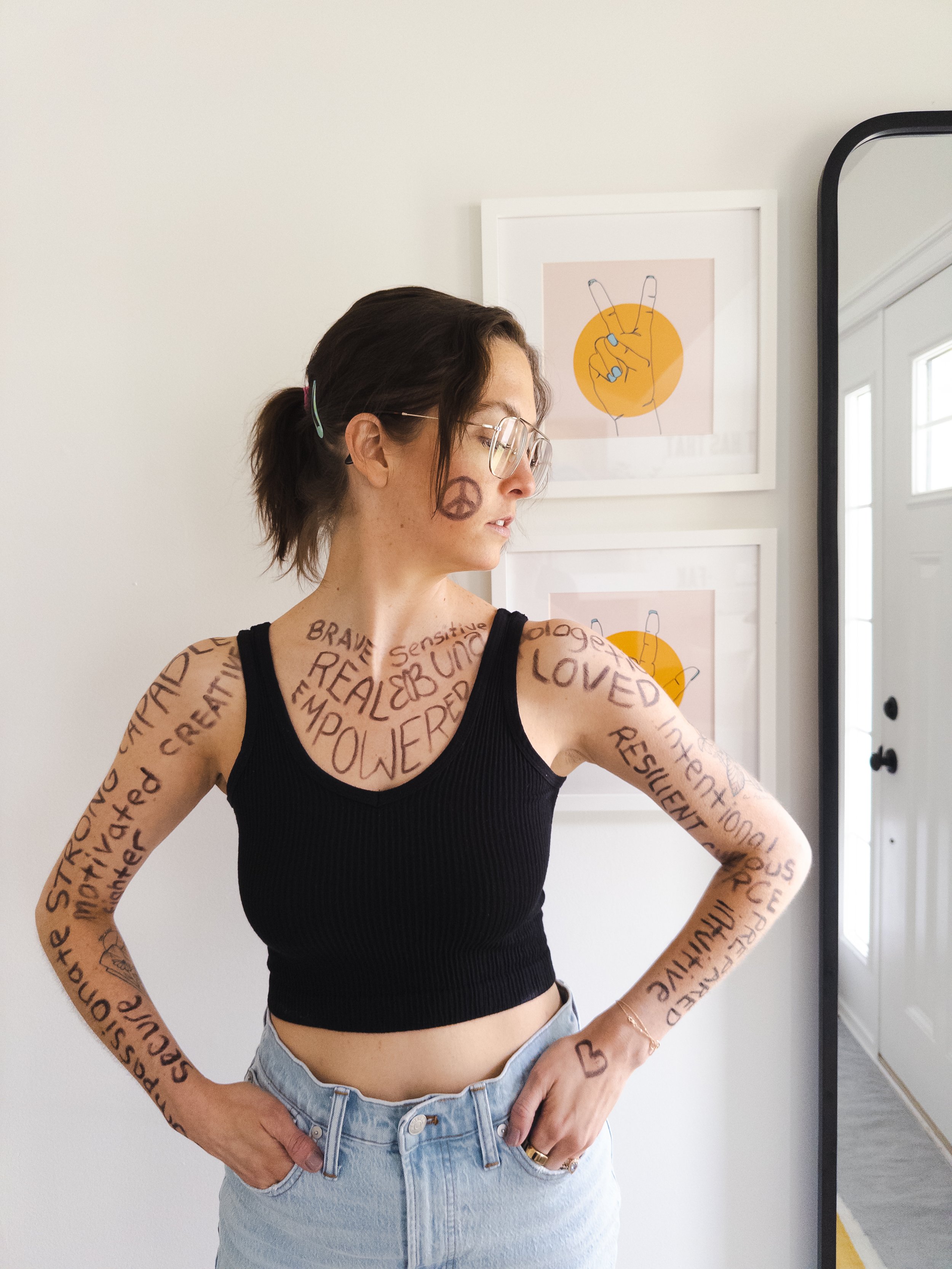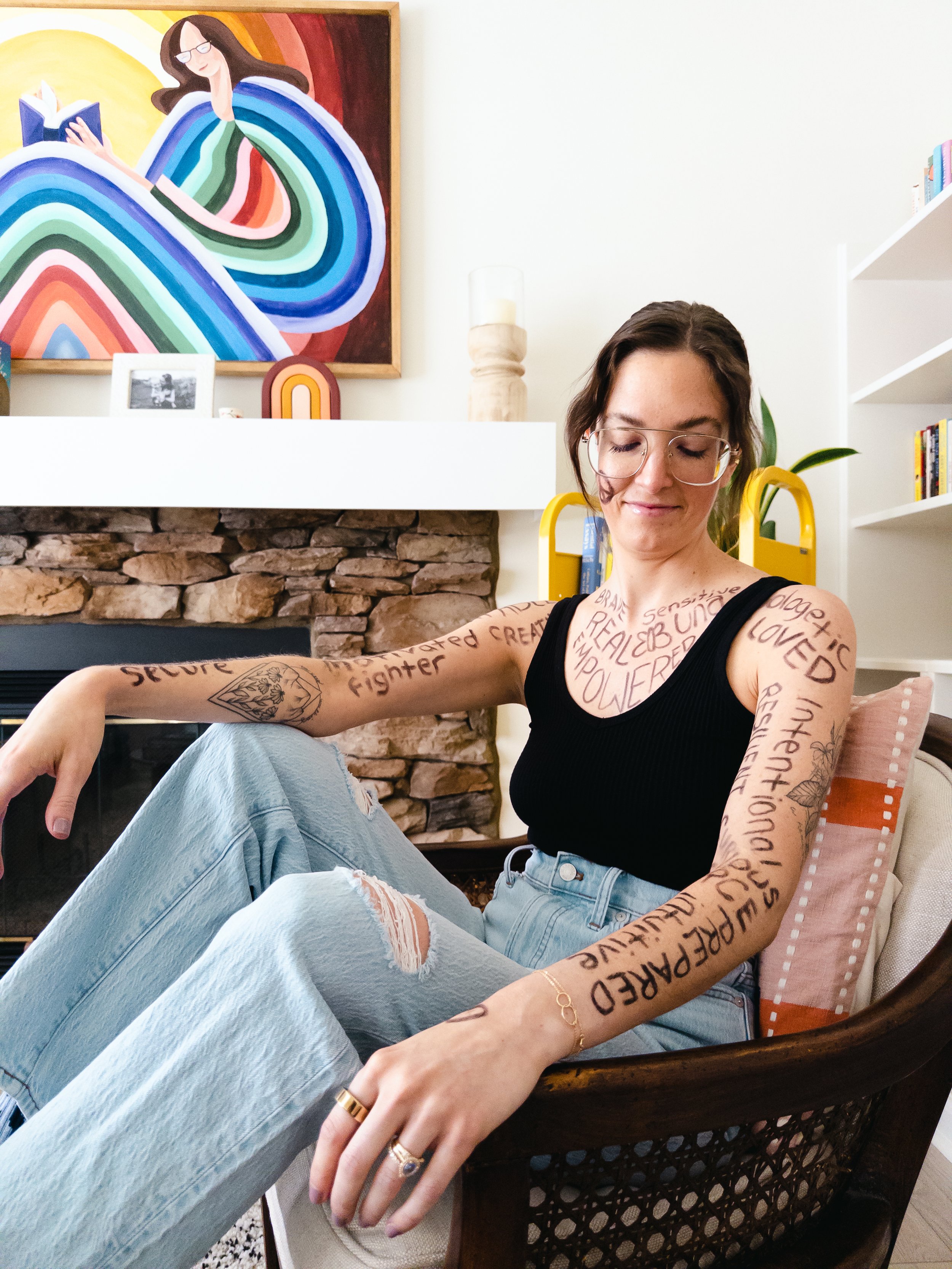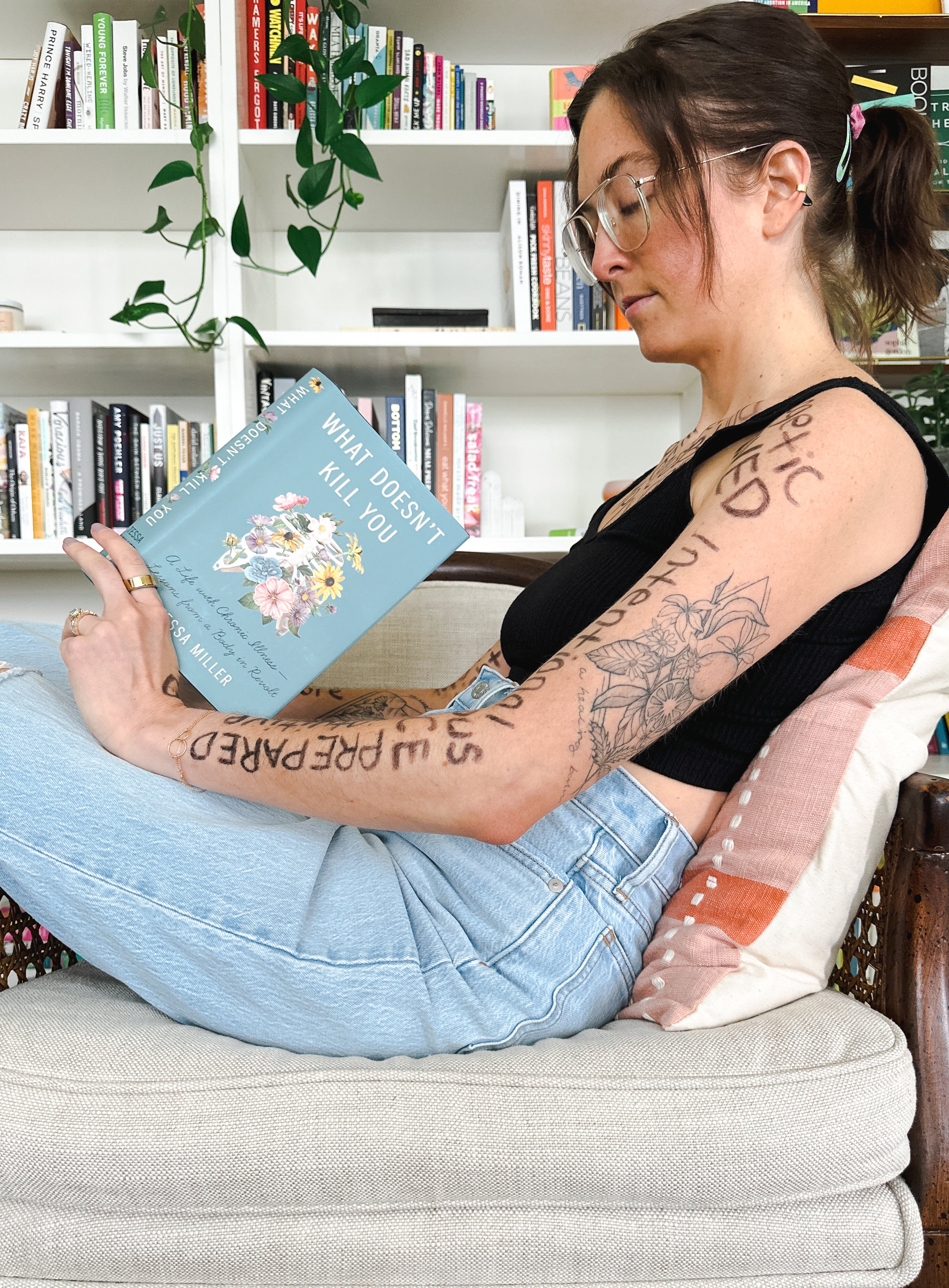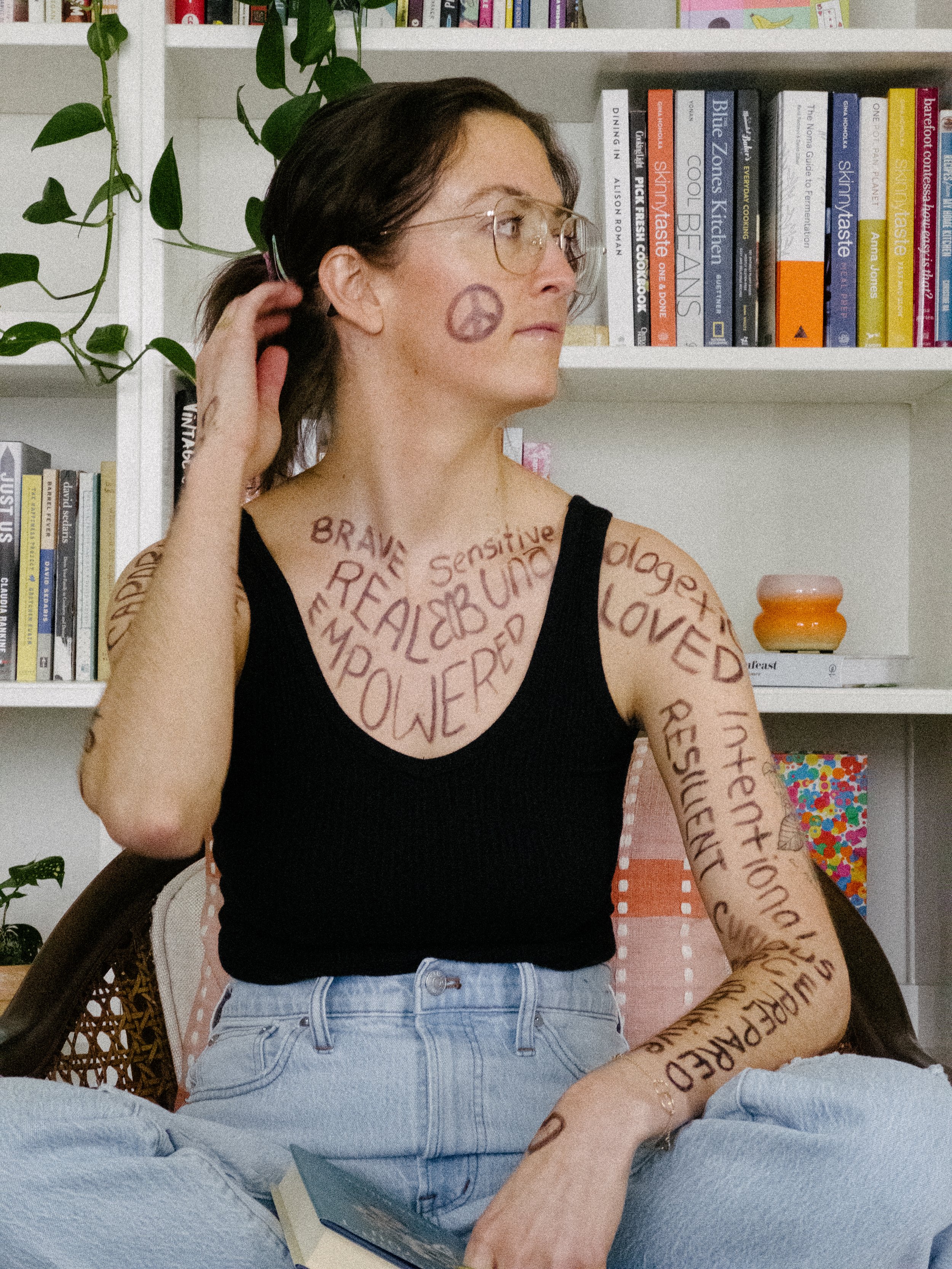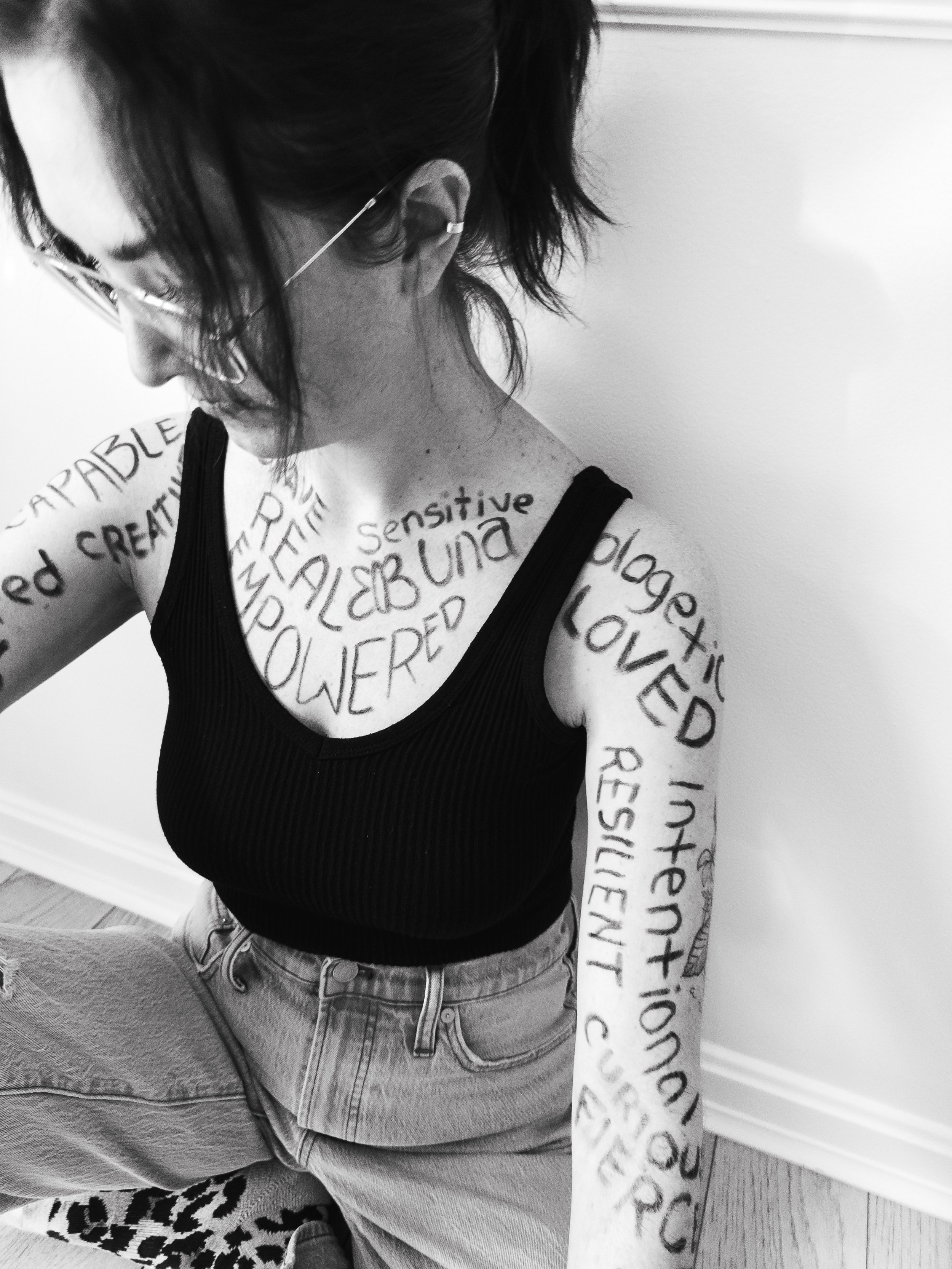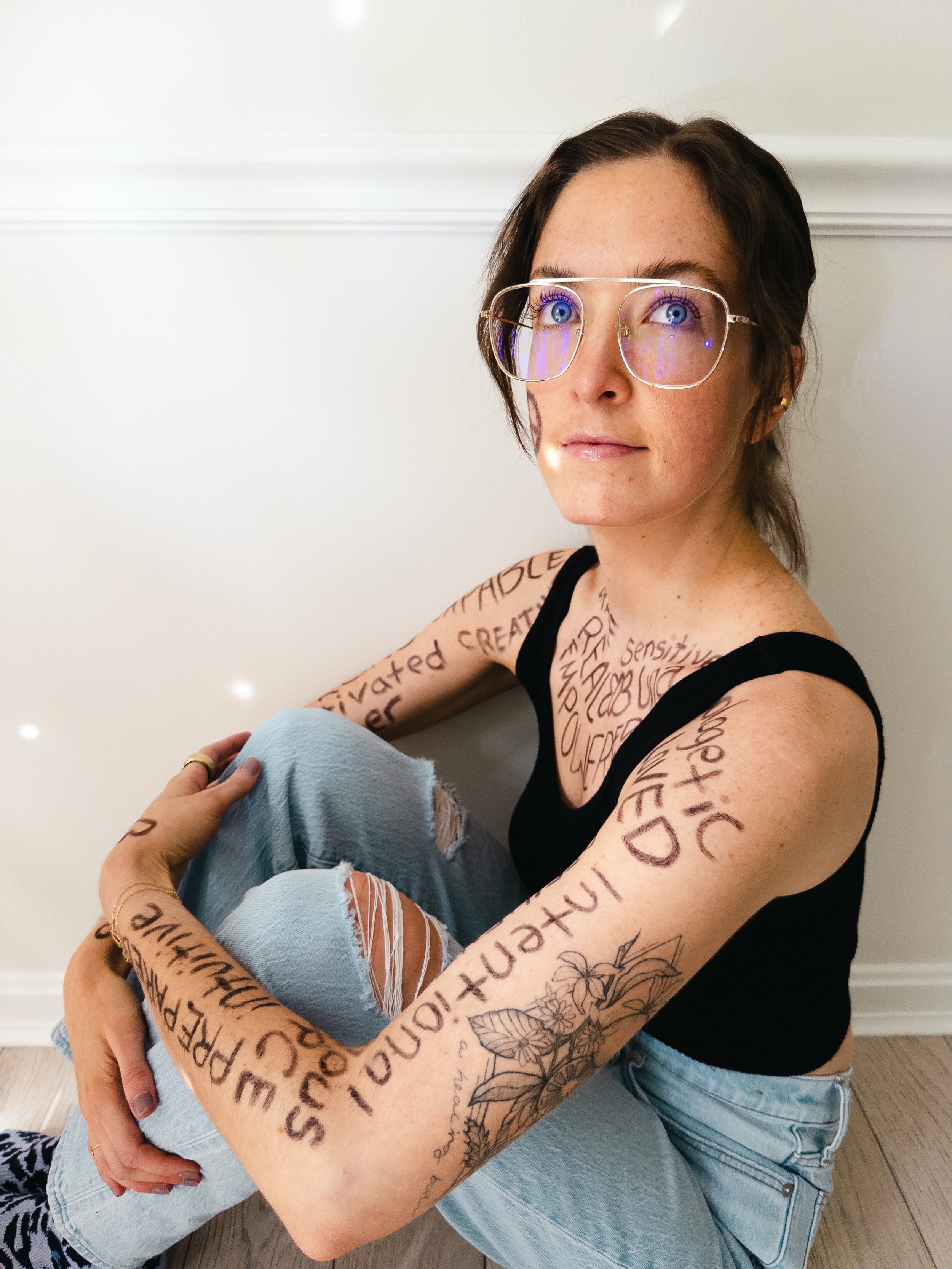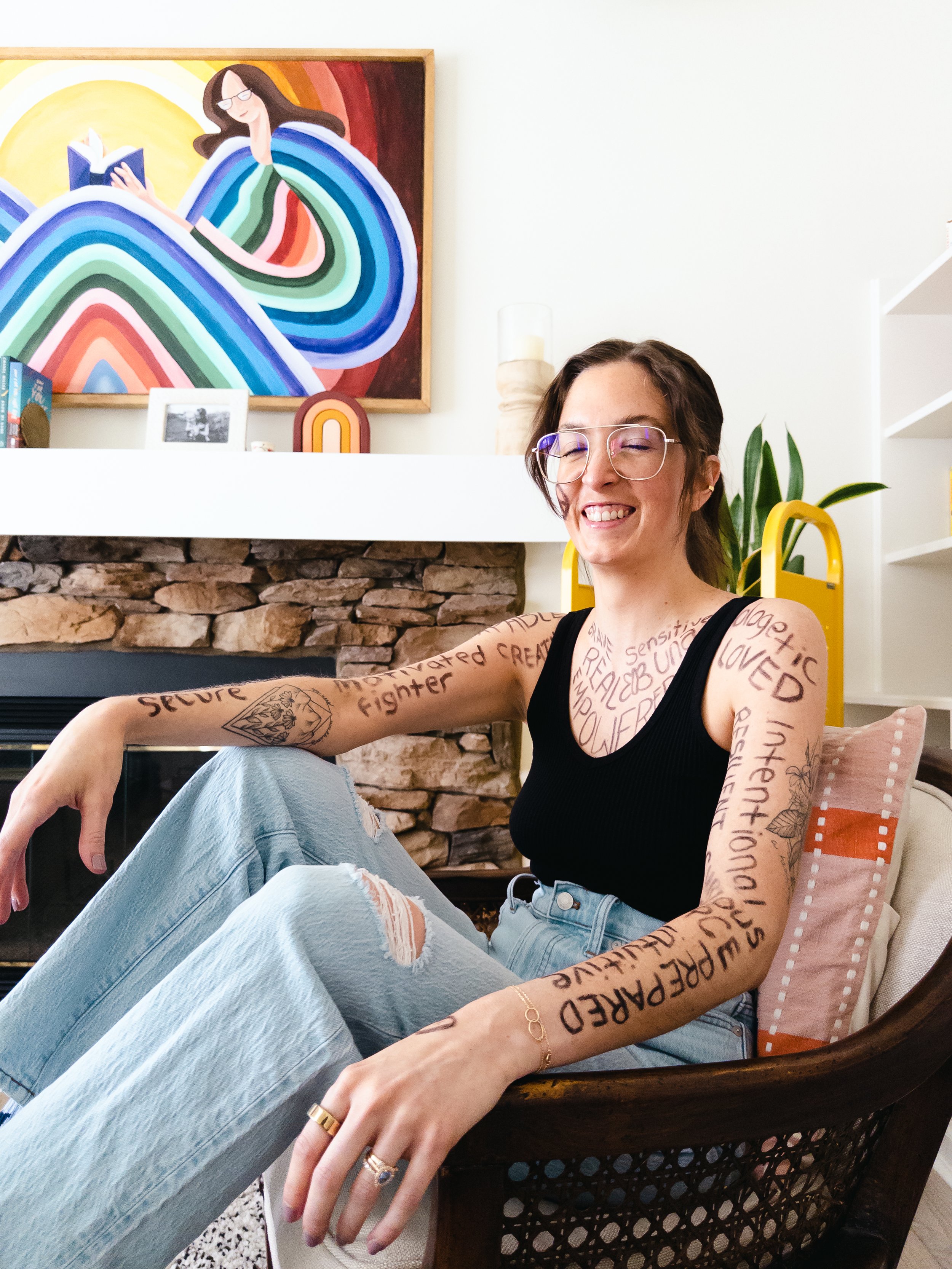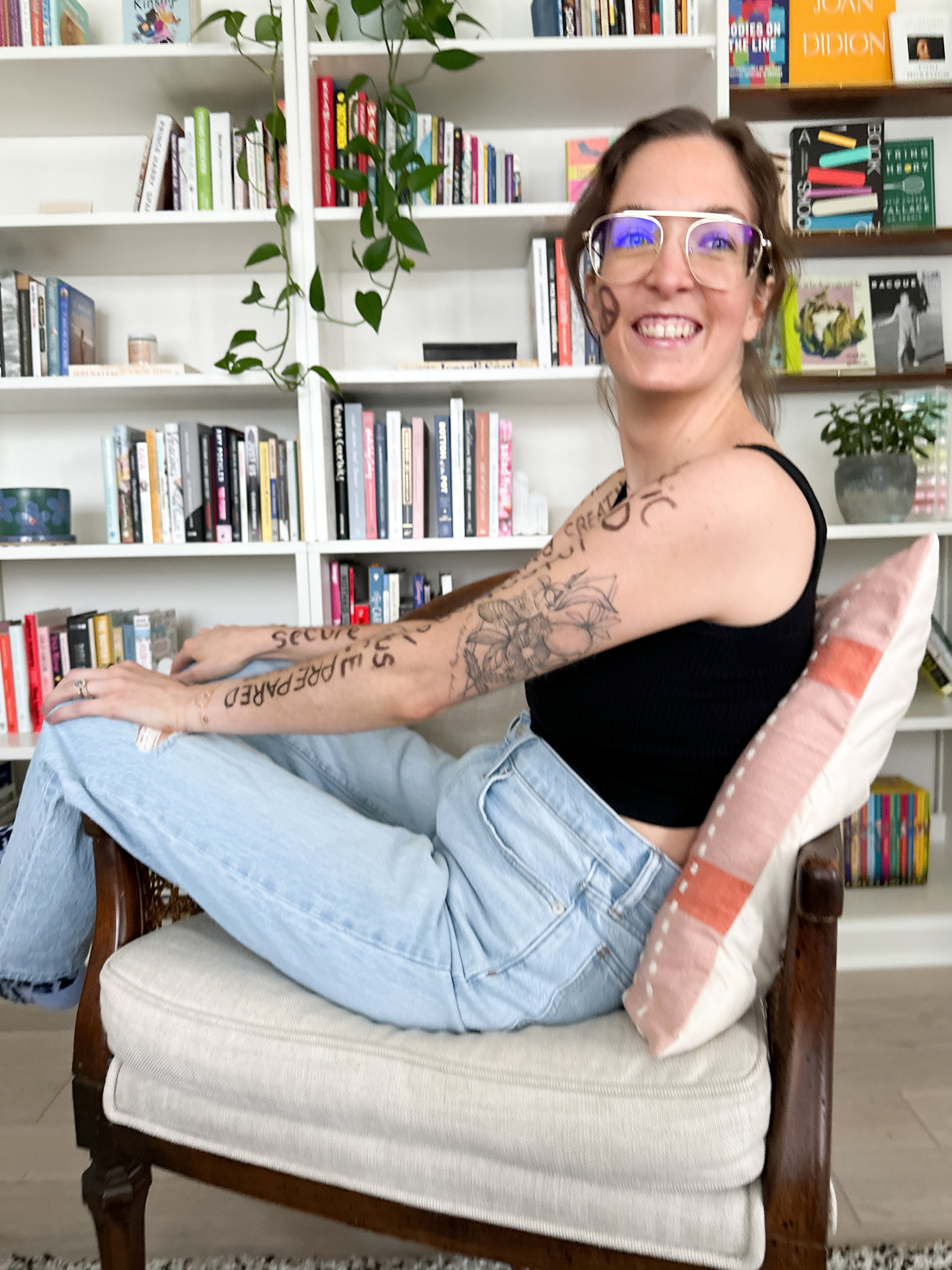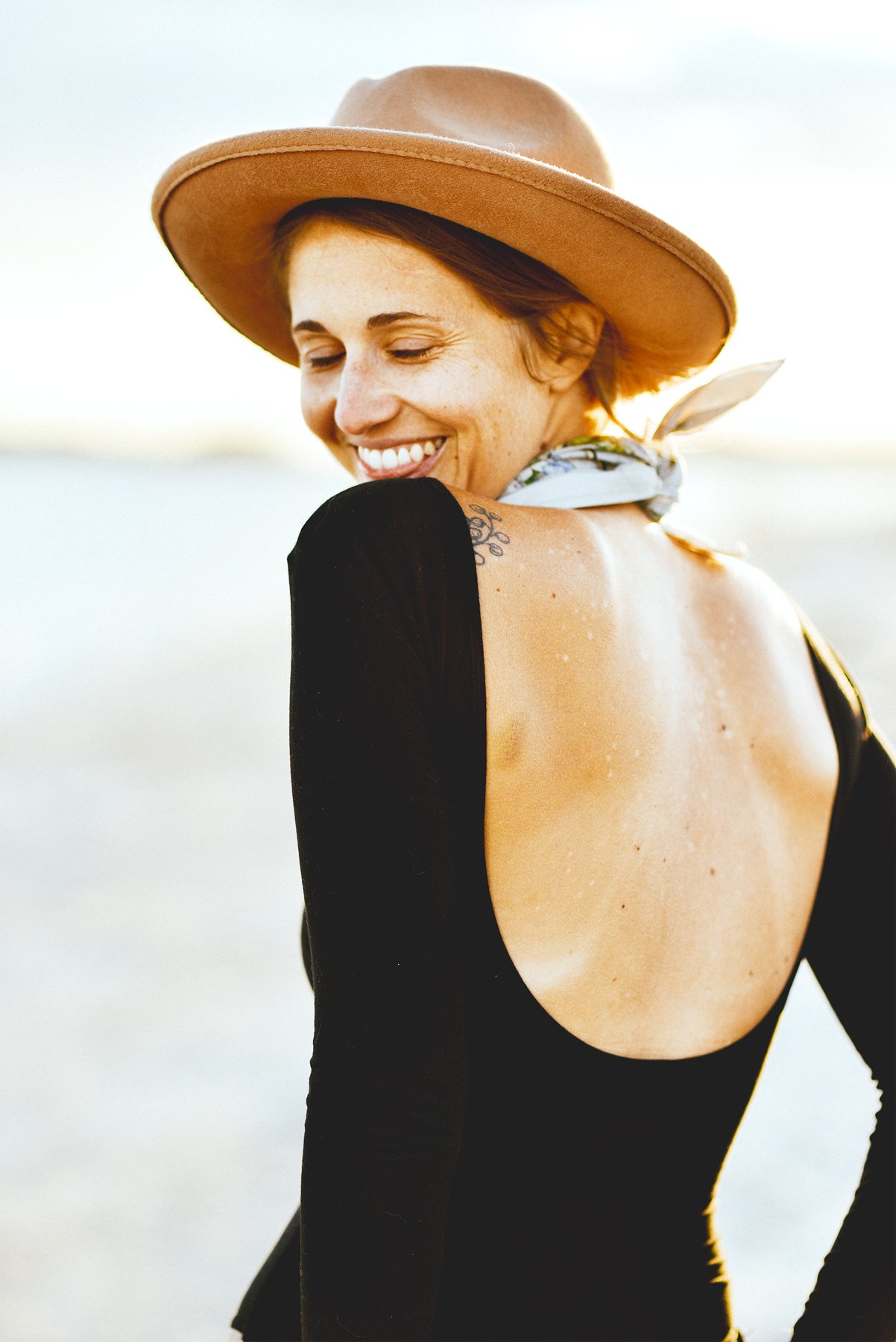Megan's Empowering Kintsugi Session
/What do you like to be called?
Megan
How old are you?
32
How Old were you when you were diagnosed with Ehlers-Danlos Syndrome? How long have you been aware of this diagnosis?
28, but I had suspicions starting about two years before (so I've known for about 4-6 years)
Where do you live? (city and state)
Sykesville, MD
How does your local climate enhance or take away from your health?
We get all four seasons in Maryland. Winter and summer are the hardest, mainly because they have become extreme versions of themselves in more recent years. In winter, it becomes challenging to remain as active as my body would like me to be. The cold causes me to tense constantly, and my muscles are not a fan. But the summer (though it's my favorite otherwise), is a constant reminder that my body is not great at regulating temperature and my tachycardia exists. Unfortunately, spring and fall are very short lived here, and so it is hard to find a happy medium.
What are your hobbies?
Reading, writing (though this is a part of my career as well), hiking
How have these hobbies and artistic expression aided you in your healing journey?
Through my love of reading, I have learned so much about chronic illness, grief, loss---all things I've repeatedly experienced and struggled to process. I've also learned so much from other people's stories--different ways to process, keep going, adapt. How to take care of my mental health and wellness. Writing has been my primary outlet for as far back as I can remember, though sometimes I find it's hard for me to turn to that outlet when I'm in the thick of things. Once I have some distance and perspective, I can really hit the ground running with that pen and paper. And hiking (a more recent hobby) has done wonders for my mental health as I navigate the ups and downs of chronic illness. It's not always something I'm able to participate in depending on what my body is feeling or experiencing, but when I can I latch on to the opportunity to be in nature breathing in fresh air and moving forward in the stillness to an endpoint.
Would you consider yourself to be sensitive/ tender hearted and empathetic?
I am definitely a sensitive person, to the point that people often tell me I'm too sensitive. I take great offense to that. I think sensitivity is for sure a superpower. And telling people otherwise is a mechanism for shutting down people's feelings. On the other hand, sometimes being able to feel other people's feelings so deeply, can negatively affect my mental health, an so I have had to learn to set boundaries as a result.
Have you been subjected to traumatic events or relationships in your life? How did this effect your physical and mental health?
Most of my traumatic life events have been health related (physical), so they most certainly have affected my mental health. It's been years of learning how to process and live in a way that both nurtures and protects both my physical and mental health. It's always a work in progress.
Are You In a romantic Relationship?
Yes, I am married.
How long have you two been together? I would love to dive into the health of your relationship and how you and your partner navigate life with Ehlers-Danlos Syndrome. What works? What doesn't work? Does your partner help you in your treatment and lifestyle?
My husband Andrew and I have been together for just about three and a half years. When we met, I was already diagnosed with EDS, and I was very upfront early on about what it was and how it affected my everyday life. He never hesitated, and he's been my biggest physical and emotional support ever since. A couple of years into our relationship (during the thick of the pandemic), I encountered a new set of health challenges (unrelated to my EDS...well maybe) that neither one of us was expecting or prepared for. It really turned our world upside down, and forced us to rethink many of our lifestyle choices. It was a hard, dark time in my life and our life together, but we were the only ones who truly knew and could understand what we were going through and despite all of the frustrations, unknowns, arguments, tantrums, tears, etc. it really made our partnership stronger. In terms of my EDS, Andrew helps me immensely. He does almost all of the driving, which is particularly hard for me. He does all of the cooking, which is not something I'm really interested in anymore, and takes quite a lot out of me. Anything I need from a physical standpoint, he's there; he'll shoulder the load. But he also always gives me the space to decide for myself what I do and don't need, which is important. He's also an incredible emotional support. He'll tell you that he doesn't always know the right thing to say, but he always shows up. He's always there to listen. We've learned that even though he wants to "fix" any and every problem, that's usually not what I need. More often than not, I just need a space to share my feelings, cry (I cry a lot), and be comforted. Before meeting him, I was very much a person who never wanted to ask for help. And that often led to resentment when no one was offering to help (without knowing that I needed it). Since meeting him, and over the course of our relationship, I've become a person who asks for help when I need it. And for the most part (I have my moments), I don't feel weak or less than for having to do so. I feel empowered for knowing what I need and for making it happen.
How do you express yourself artistically?
Through my clothes, my home, through photos, through writing.
How have you creatively adapted your lifestyle and daily life to care for your body's needs?
This question is really making me think. I'm getting stuck on the word "creatively," so I'm not going to answer for right now.
Did you go to College? If so, where and what did you study?
Yes, McDaniel College for undergrad. I was an English major, minor in writing. Towson University for grad school where I studied professional writing.
Did your physical body impact you in what you studied and how you were able to study?
Back then, I didn't know I had EDS. And my symptoms were not as bad back then as they are now. But yes it was challenging having to sit in classes all day in general , in old classrooms with old, hard chairs. I was always either reading a book or a handwriting...and eventually typing a paper. All of those things (especially the handwriting drafts thing, which I was and still am adamant about), were taxing on my body. But not knowing, I just kept pushing through.
I'd love to know your 'career' or work path. How have you had to adapt to accommodate what is best for your body? Are you still able to work? Do you work for yourself? Would love to hear any advice you have for other EDSers from the path you've walked.
I work in Communications now for a Foundation that gives grants. This has been the most difficult area of my life for me to navigate in terms of my EDS. I worked full time, in office, pre-pandemic. When the pandemic arrived, we transitioned to 100 percent remote work for almost two years. That changed everything for me. Now we're back to a hybrid model (half the week in office, half at home). I struggled (and still currently am) a lot with going back into the office when the time came. I'm actually currently trying to figure out how to navigate the conversation of needing to spend more time working at home with my employer. To be very candid, I'm scared about having the conversation.
How has your physical body's condition and the connections you make with others in this community influenced your life's work?
I'm very introverted and don't often connect with people directly in the EDS community. But through reading, social media, etc. I've learned so much about the chronic illness community in general, that it's really empowered me to approach a lot of things differently. I've become much more direct and upfront about who I am and what I need. I've realized how important it is for me to talk about my EDS, to educate people on it, to do whatever I can to make chronic illnesses in general more normalized within society.
What are the pillars of healing in your life? What specific tools have you found that help give you a better quality of life? meditation? prayer? acupuncture? Jin Shin? Body Work? Tell all!
I've been struggling with the word "healing" within some of these questions. But in terms of what things help give me a better quality of life--physical therapy is the most important thing and the thing I am most consistent about. Daily exercise (both strength building/maintaining and movement) are also essential for me. I more recently have been diving into mindfulness (guided meditations) and am enjoying those.






